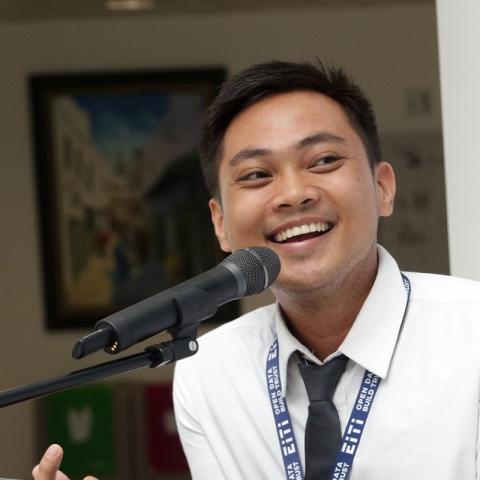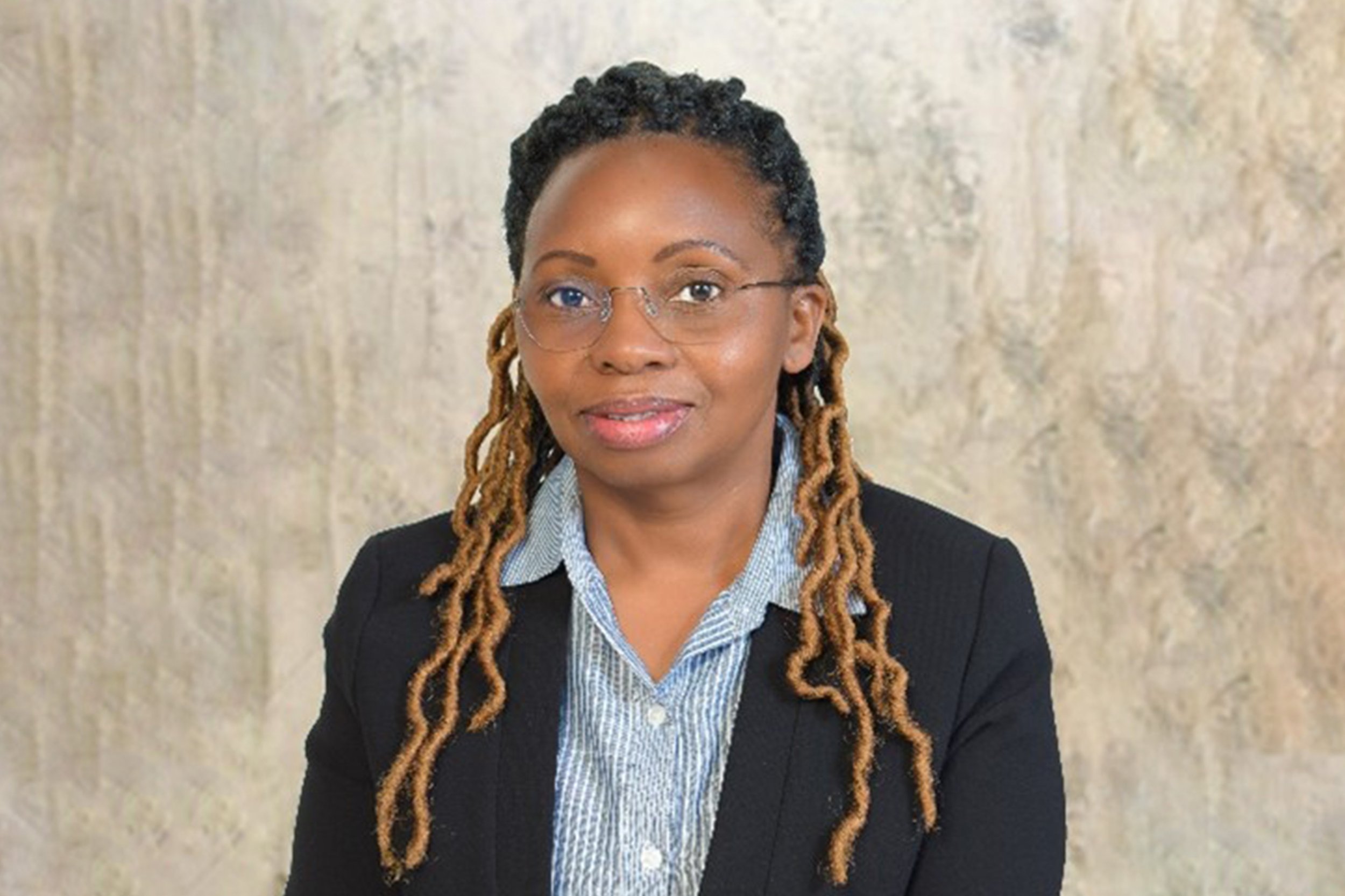Marco Zaplan

The Governance Action Hub engaged with national and local champions in governance reform in the Philippines in December 2023 to explore how they are responding to climate change, energy transition, and associated minerals extraction. The team learned about the challenges, strategies, and opportunities for greater collaboration and improved governance. One of the consultations was with Marco Zaplan, an EITI data hackathon winner, who developed the PREDICT or ‘Projecting Revenues from the Extractives for the Development and Investment in Communities’ Tool. The PREDIC Tool provides a simple means to understand revenues from mining in terms of revenues collected, what happens when prices change, and how revenues are allocated. The tool can be used by national and local economic planning agencies for scenario planning, but also as an advocacy tool for civil society organizations and as a capacity building tool for the Secretariats of the Extractives Industry Transparency Initiatives (EITI).
We recently interviewed Marco to learn more about the tool and their efforts at the Gov Data Initiative (GDI) to engage local communities in energy transition discussions at the local level. GDI aims to increase the accessibility of mining data to local stakeholders with user-friendly tools like PREDICT and strengthen their capacity to monitor and analyze mining data.
Issue: State Capture
Target: Communities to access and analyze mining data to understand revenues due to them
Geography: Philippines
Scaling Stage: Pilot
Innovation / Innovative Approach
Q: Tell us about PREDICT and how this tool might be used by communities?
Marco: The Philippines has made a lot of progress in increasing disclosure of mining data with the implementation of EITI (Extractives Industry Transparency Initiative), but a lot of this data has yet to fully reach local communities. Communities are at the forefront of social, environmental and economic impacts of mining activities and yet they are often the ones left in the dark. With the PREDIC Tool, we aim to better inform local stakeholders what is due to them by law. We think this is very important because it puts them in a better position to plan for long-term development.
We are empowering local stakeholders to better understand and monitor revenues and other benefits from mining. We know that when there is lack of transparency – when no one is watching, that is where corruption is. With the PREDIC Tool, community members and local CSOs with little or no technical background can access mining data and engage in conversations related to mining governance because they can easily understand the data. That for us is the vision of the PREDIC Tool.
We are currently piloting the PREDIC Tool in two mining projects and communities in the provinces of Palawan and Cebu – two of the largest producers of energy transition minerals in the Philippines. Nationally, we have 56 large scale metallic mining operations and 298 approved mining contracts. We are really just scratching the surface – but our strategy early on was to think big, start small and scale fast. We hope to scale up the implementation of the PREDIC Tool in other mining projects and communities.
Q: How does it work and why is it innovative?
Marco: The project is very consultative and involves multiple stakeholders – government, industry and civil society organizations (CSOs). National government agencies and companies provide us with data while CSOs provide us inputs on what data are needed by local communities. Intuitively, we think mining companies have a lot to gain by being opaque but actually they are very cooperative with our project. With the implementation of the Philippine EITI, a lot of them really see the benefits in becoming more transparent because it helps get buy-in from their communities. It lessens conflict and it builds trust in the industry.
We also engage with the provincial and municipal governments – specifically their budget office and their treasuries because they are concerned with mining revenues. We learned about the challenges they face including the lack of transparency around the right amount of shares that are due to them from nationally-collected mining revenues. There should be more transparency in how much local governments should be receiving. With the PREDIC Tool, local governments can monitor and validate the amount that is due to them and compare it with data on what they actually received from the national government.
We are hoping to achieve two outcomes with our project. Firstly, we envision local stakeholders to use the PREDIC Tool for long-term development planning and for monitoring the benefits that are due to them. With the energy transition, there will be an increase in government revenues from mining. We don’t want these opportunities to go to waste due to poor planning and corruption.
The second [outcome] is to empower marginalized groups in resource governance discussions. We envision indigenous people, young people and women to use this data to hold other stakeholders accountable. We envision they might ask their elders, their mayors, and their village chiefs, how the benefits are being spent for communities and where the money is going.
Q: What are we learning? How is your work changing power relationships?
Marco: Digitization tools are helpful to enhance transparency but putting information out there alone cannot ensure data use. We learned that we need to first ask what data is relevant to our end users and build their capacities in accessing, analyzing, and applying data.
We initially planned to focus on mining revenues, but after consulting with local stakeholders we learned that they were also interested in the social and environmental impacts of mining. As demand for energy transition minerals increases, communities need to know more about these impacts, so they can mitigate them and channel more resources toward environmental protection and climate resilience because we are prone to natural disasters. With this, we visualized greenhouse gas emissions and water consumption data of mining companies using the PREDIC Tool.
We’re engaging with indigenous peoples because as mandated by law, they’re entitled to 1% of the gross sales of mining companies when they operate within indigenous people’s lands. We learned that it’s often these communities that are marginalized and left behind. A lot of discussions and agreements happen between indigenous peoples leaders and mining companies, often leaving behind the community members. With our project, we aim to engage more indigenous people, women and youth to help build their capacity to engage in these kinds of discussions.
In the coming months, we will be conducting a series of capacity development activities on mining governance targeted towards local stakeholders including young people and women’s groups in Palawan and Cebu. In partnership with academic institutions, we will organize data use competitions to build the capacity of young people in data analysis and storytelling and natural resource governance. This is to give them a better context of what is happening in the mining industry in their province. These initiatives aim ‘to equip local stakeholders with the skills needed to access, analyse and apply data in the PREDIC Tool in their work and advocacy.’
We are closely working with local academic institutions to help ensure long-term sustainability of our work. Our current project is funded by USAID, but it’s not forever. We hope to institutionalize our initiatives and eventually pass on some of them to our higher education partners, because they have more stable funding and know the local context better.
Interested to learn more? Join an informal discussion with the Governance Action Hub Community of Practice in the coming months. We will explore how one might engage community stakeholders who are not always part of the conversation – be it involving extractives, Natural Resource Management or climate action. Sign up here – we welcome your thoughts on topics or challenges we might explore in future meetings.
Join the Governance Explorers
We are bringing together a global network of people eager to rethink governance and influence local, national and global debates.


